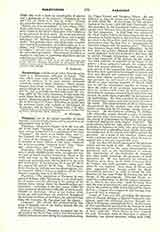www.catholic.com/encyclopedia/paraetonium


Click to enlarge
Paraetonium, a titular see of Lybia Secunda or Inferior (i.e. Marmarica), suffragan of Darnis. This city, which some claim should be called Ammonia, owed its celebrity to its port, whence Alexander visited the oracle of Amun (Ammon). Mark Antony stopped there before Actium. Justinian fortified it to protect Egypt on the west. It has since disappeared and the port is partially covered with sand; the site, long called by the Arabs, Baretoun, today bears the name Mirsa Berek, in the vilayet of Benghazi (Tripolitana). Mention is made of three bishops: Titus, present at the Council of Nicaea, 325; Siras, an Arian; and his successor Gaius, who assisted at the Council of Alexandria, 362 (Le Quien, “Oriens christ.” II, 631).
S. PÉTRIDÉS
Enjoying this content? Please support our mission!Donatewww.catholic.com/support-us

